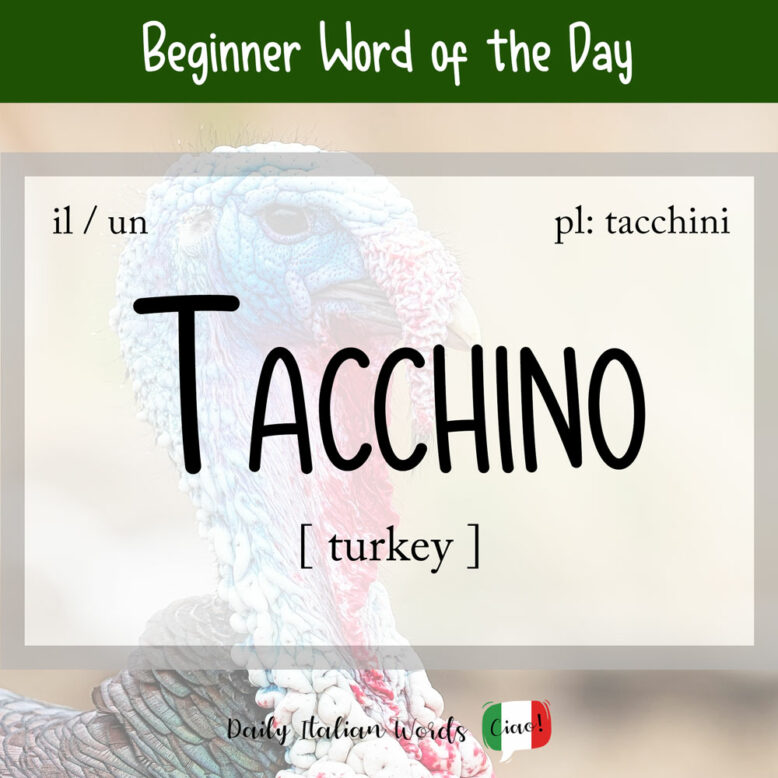Today is Thanksgiving (Festa del Ringraziamento) in the United States, and since many of our readers are Italian Americans, we decided to dedicate today’s word to the humble centrepiece of the Thanksgiving dinner table: the tacchino (turkey).

Tacchino is a masculine noun ending in -o, making its plural form tacchini. Note that the feminine versions also exists for a female turkey: tacchina and tacchine.
il tacchino
un tacchino
la tacchina
una tacchina
i tacchini
dei tacchini
le tacchine
delle tacchine
The vast majority of Italian dictionaries claim that tacchino is of onomatopoeic origin, taken from the sound the bird makes with the diminutive suffix -ino. However, if you ask an Italian what sound a turkey makes, their response will inevitably be either “glu glu” or “glo glo“, which comes from the verb gloglottare (to gobble) – not “tac tac“.
As in English, the word is used to describe, not only the meat of the bird, but also the living bird itself.
Mio zio alleva tacchini in campagna.
My uncle raises turkeys in the countryside.
Preferisci il tacchino arrosto o il tacchino farcito?
Do you prefer roast turkey or stuffed turkey?
There are two interesting sayings associated with the tacchino in Italian. The first isdiventare rosso come un tacchino (lit: to become as red as a turkey), which means to blush a lot, andfare la ruota come il tacchino (lit: to make the wheel like turkey), which means to strut around in a vain manner. The latter is an allusion to the behaviour of the male which, during mating season, fans out its tail into a wheel shape.

Heather Broster is a graduate with honours in linguistics from the University of Western Ontario. She is an aspiring polyglot, proficient in English and Italian, as well as Japanese, Welsh, and French to varying degrees of fluency. Originally from Toronto, Heather has resided in various countries, notably Italy for a period of six years. Her primary focus lies in the fields of language acquisition, education, and bilingual instruction.


